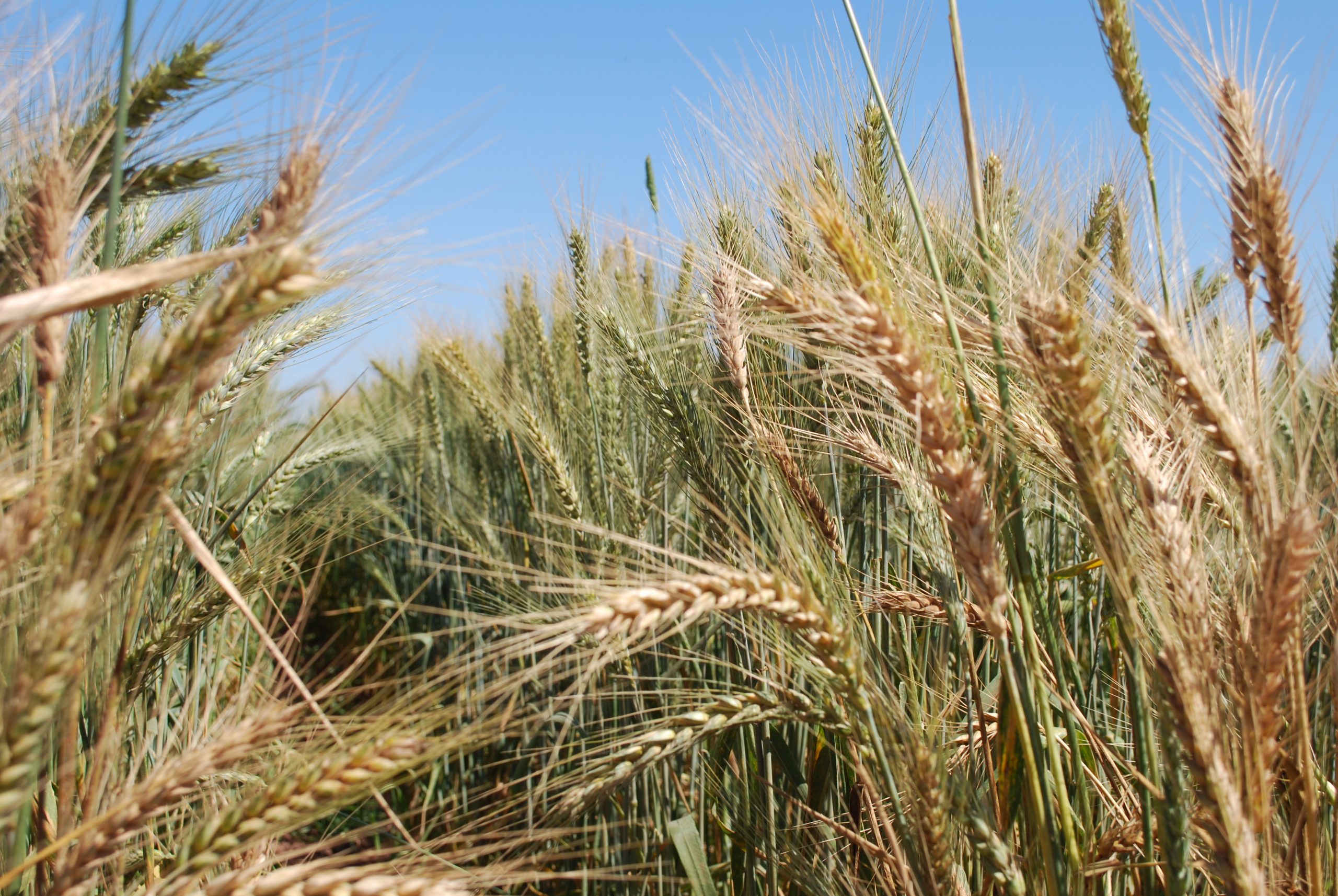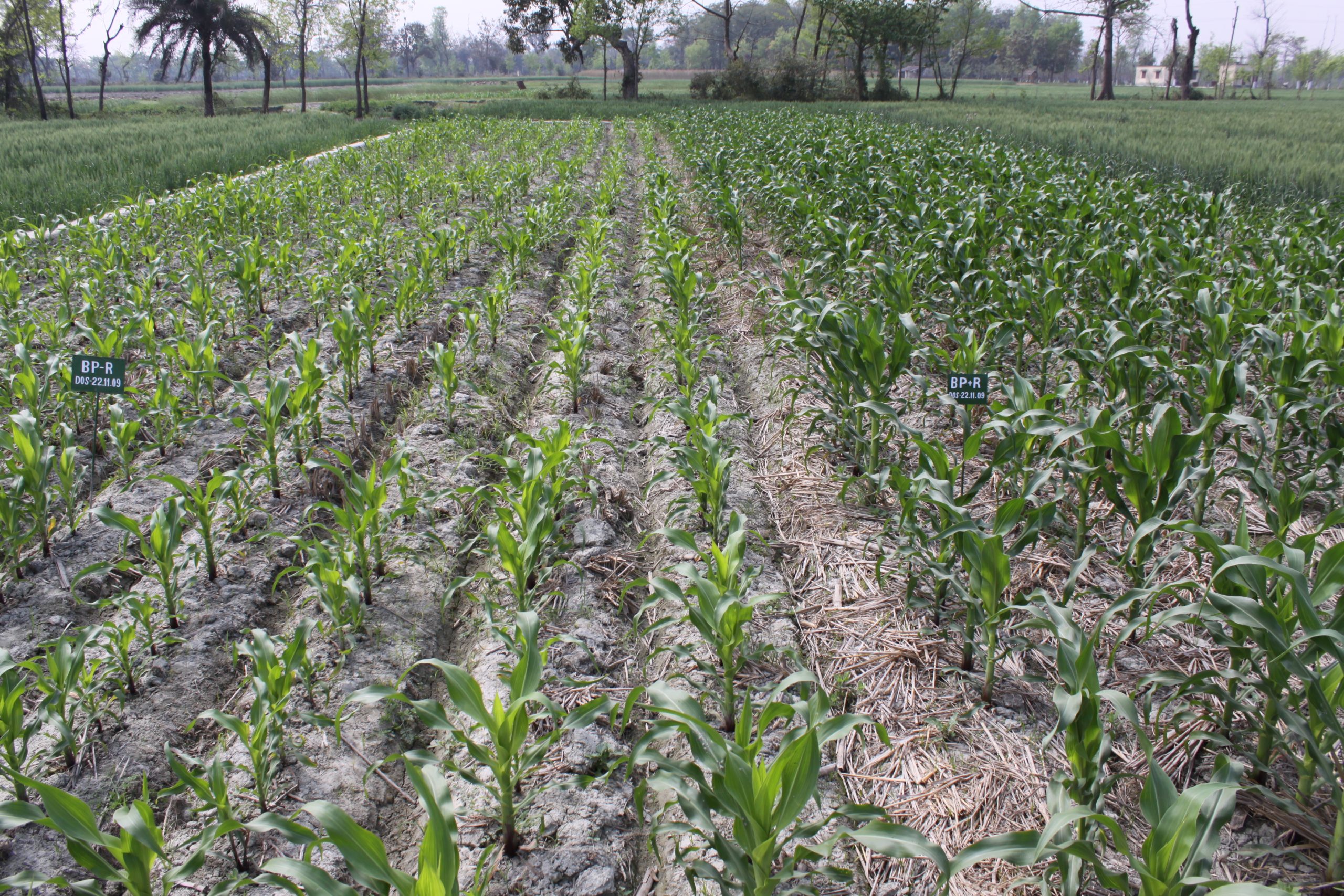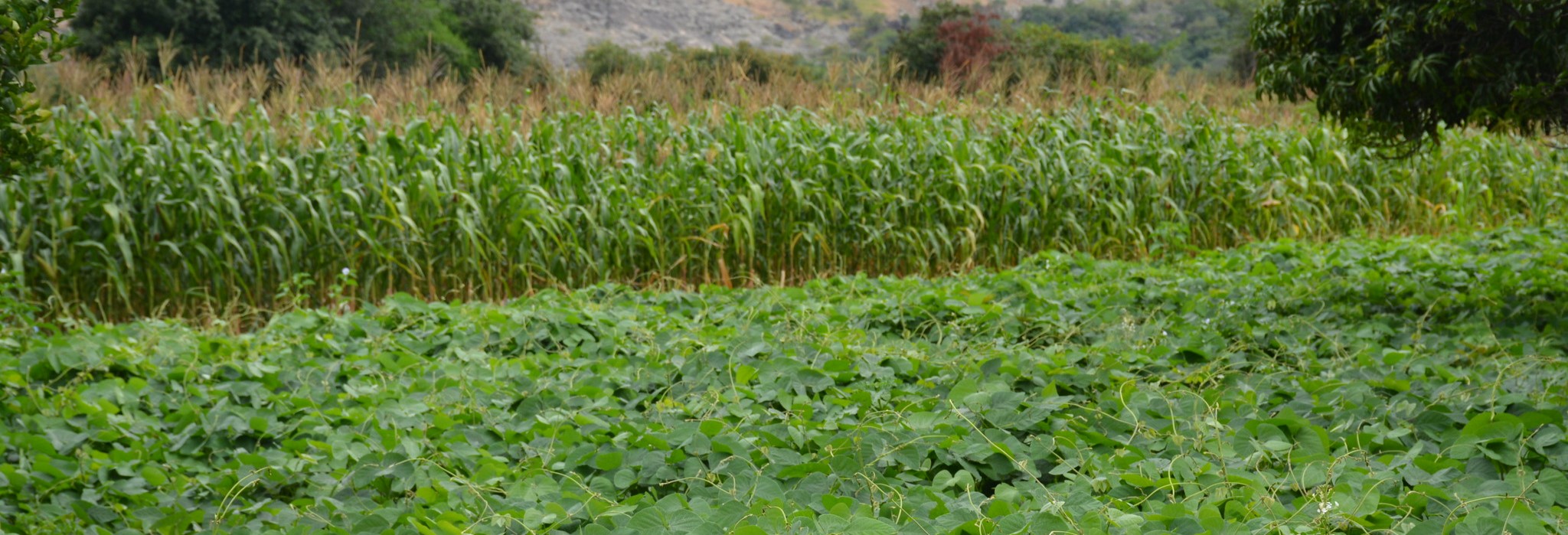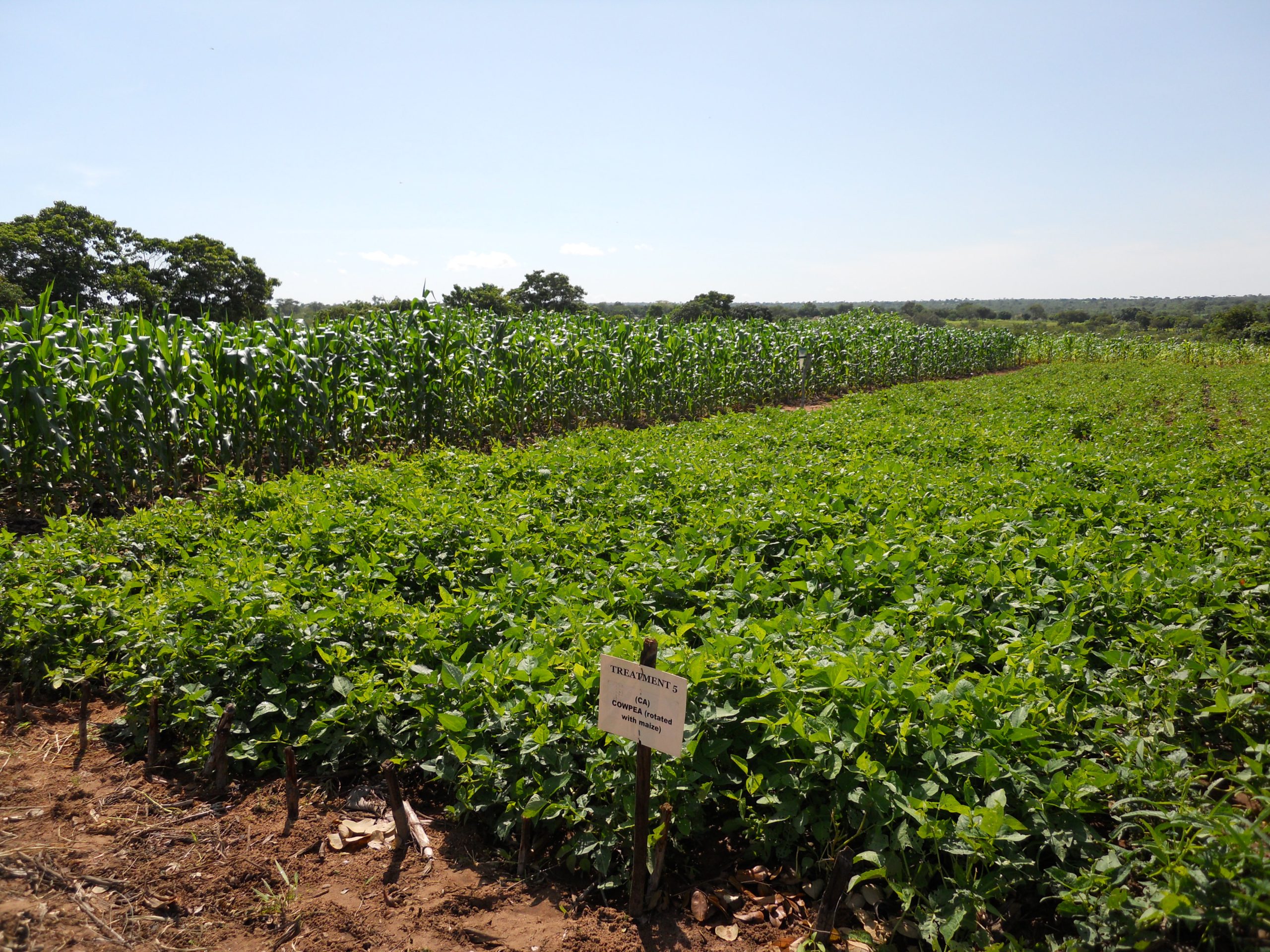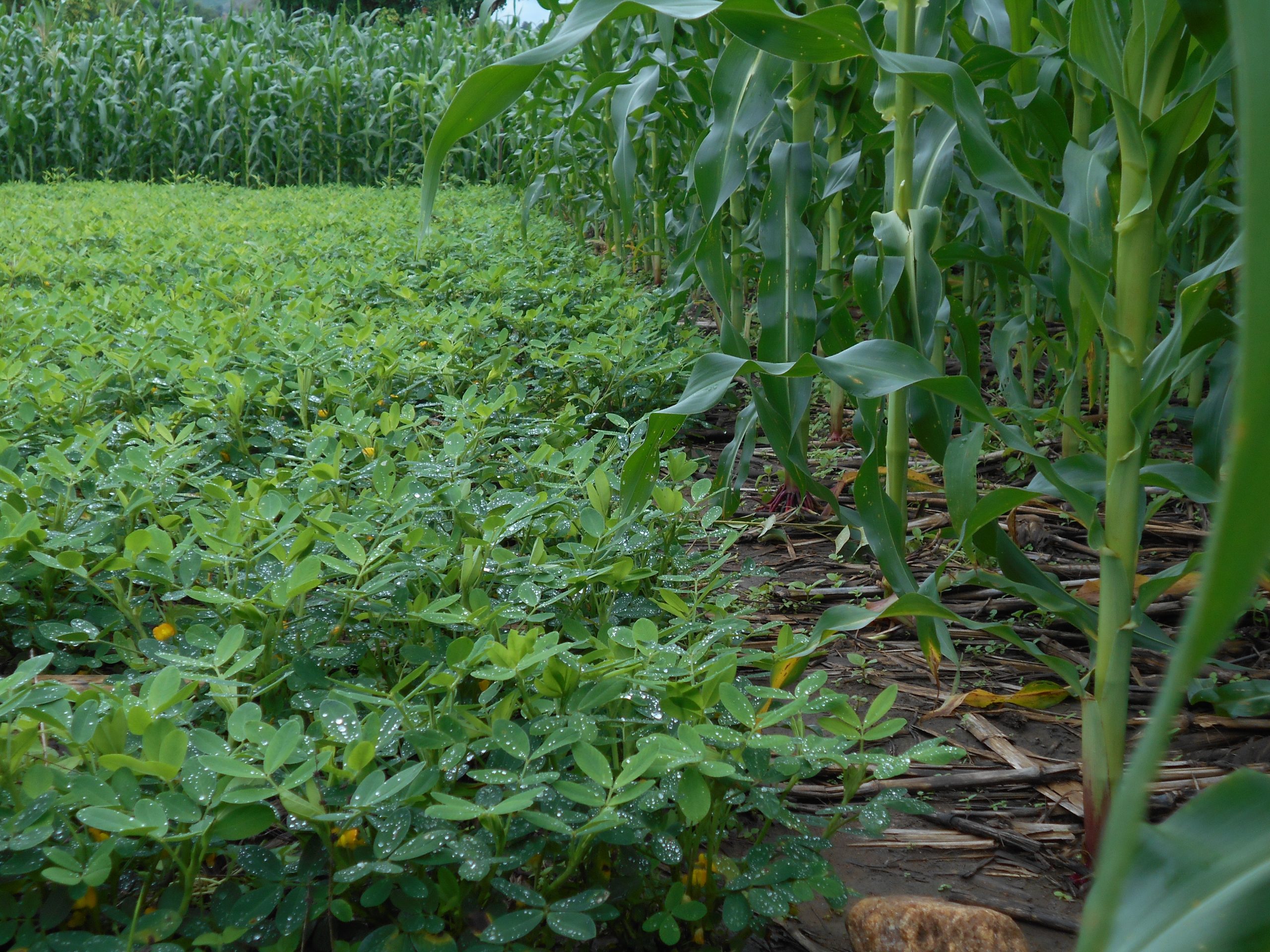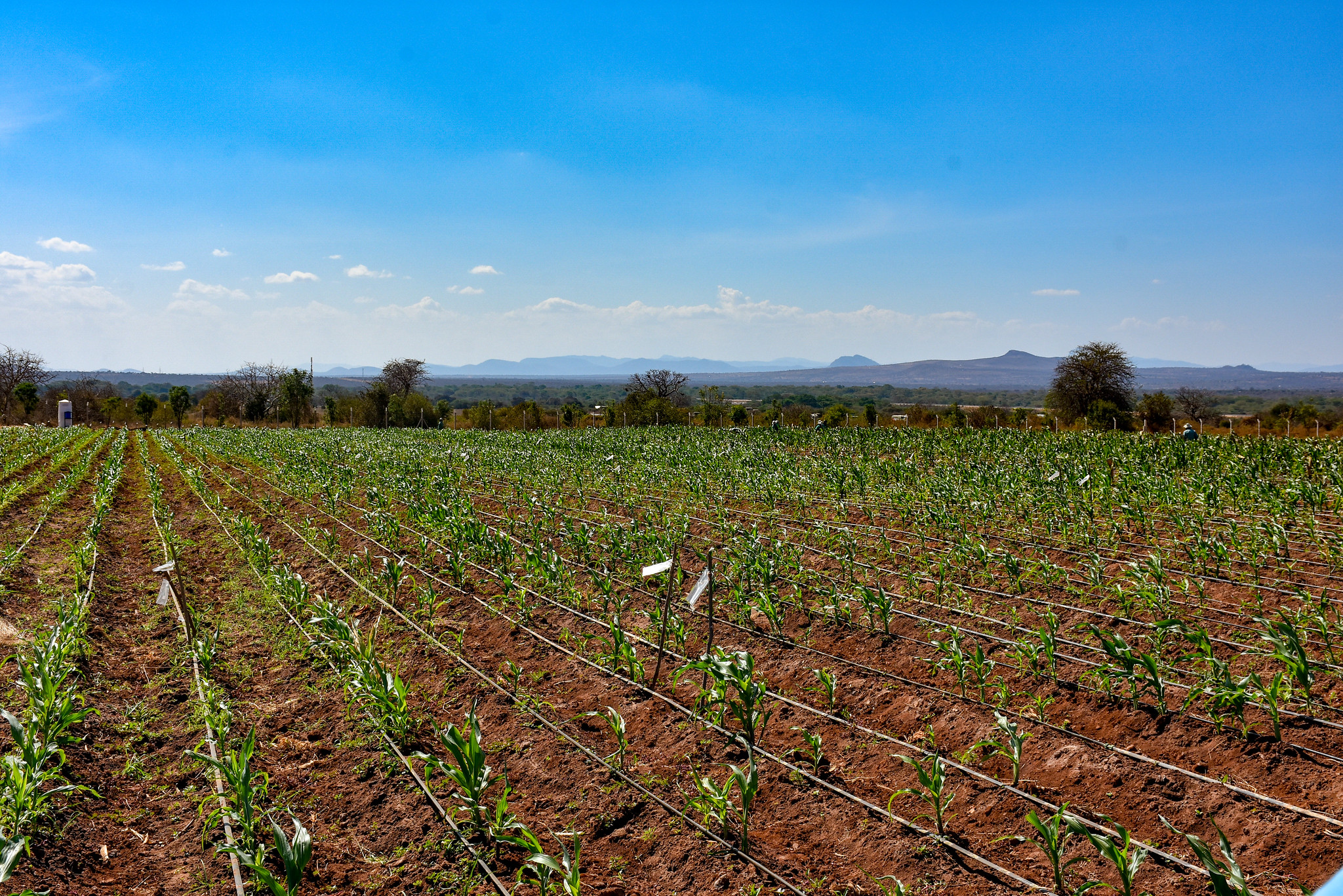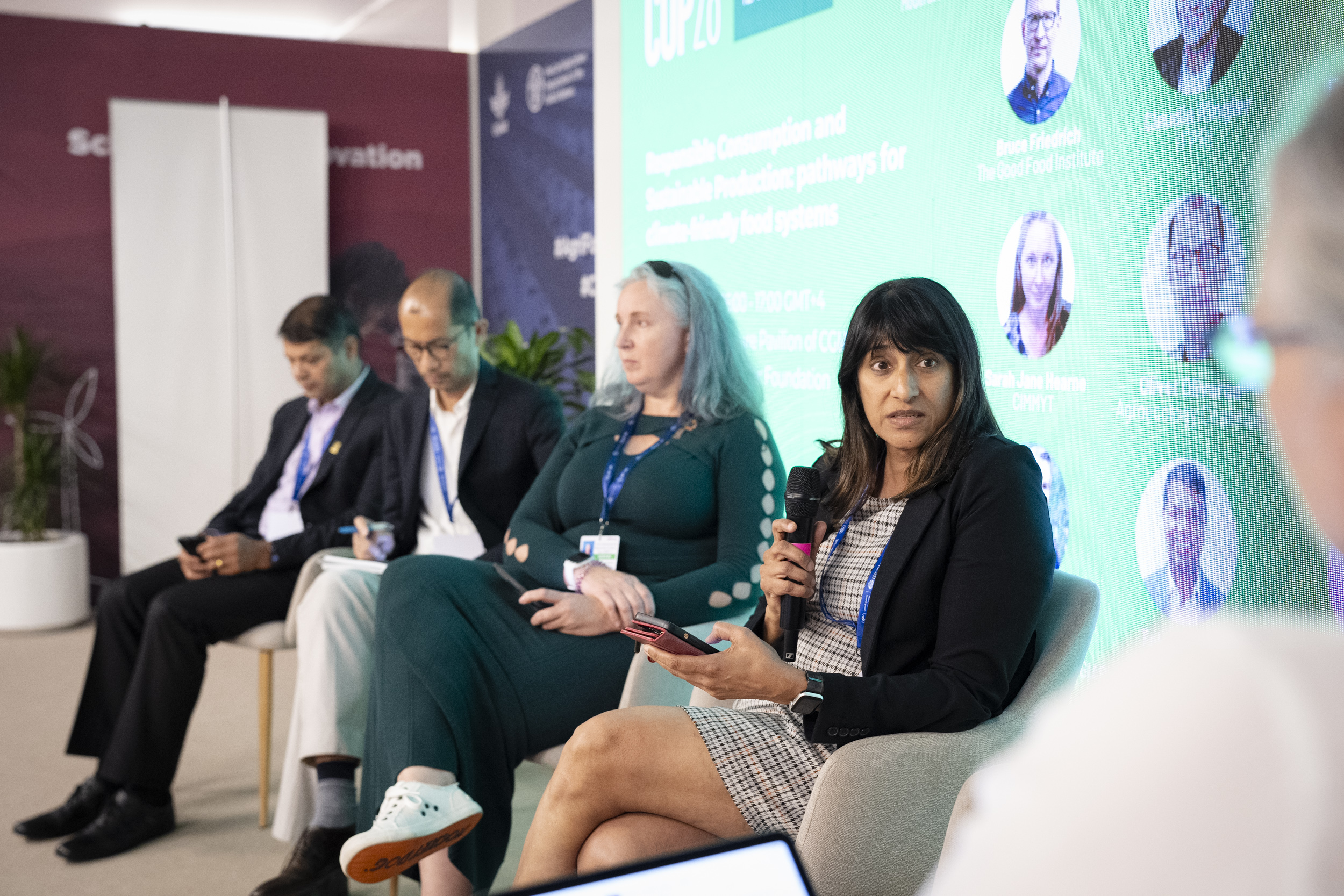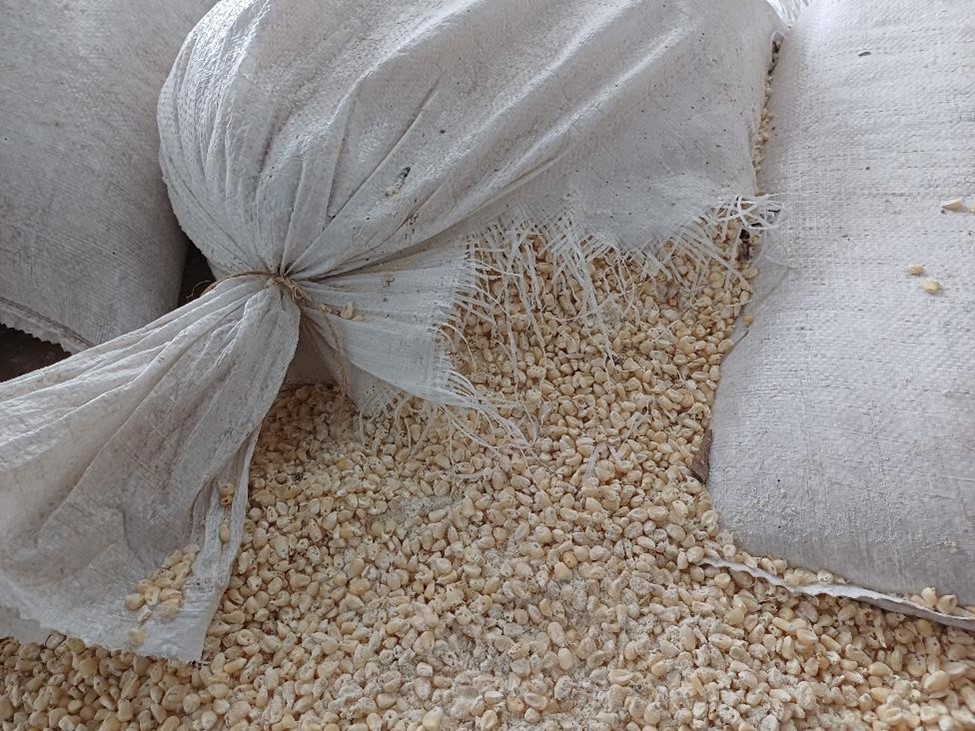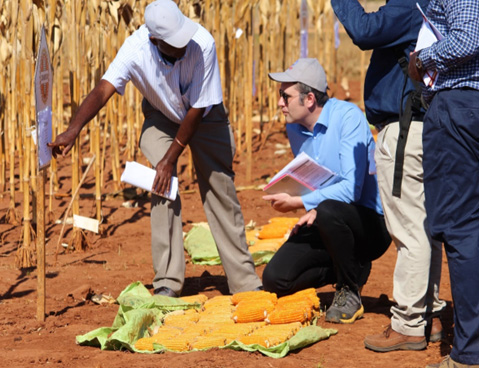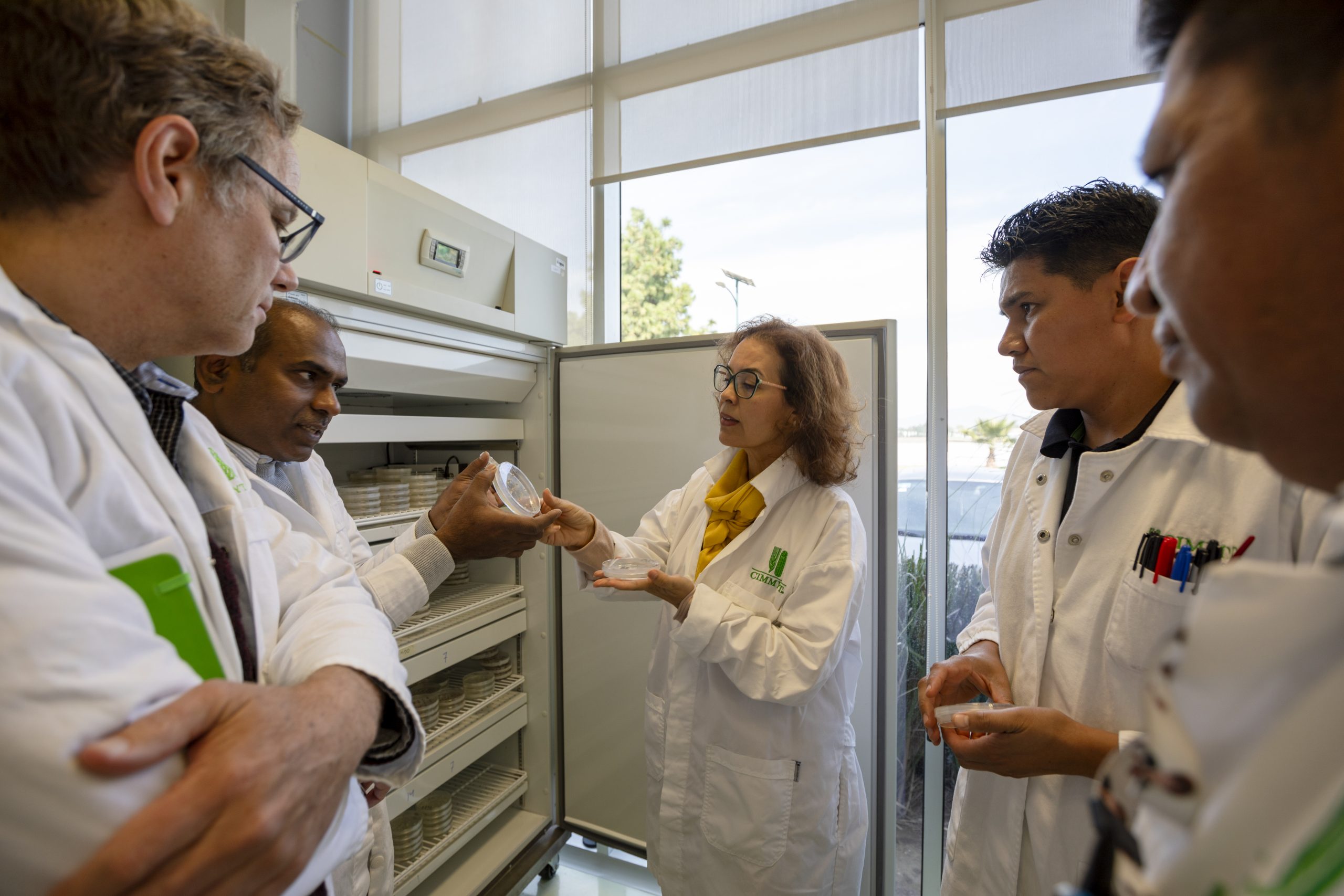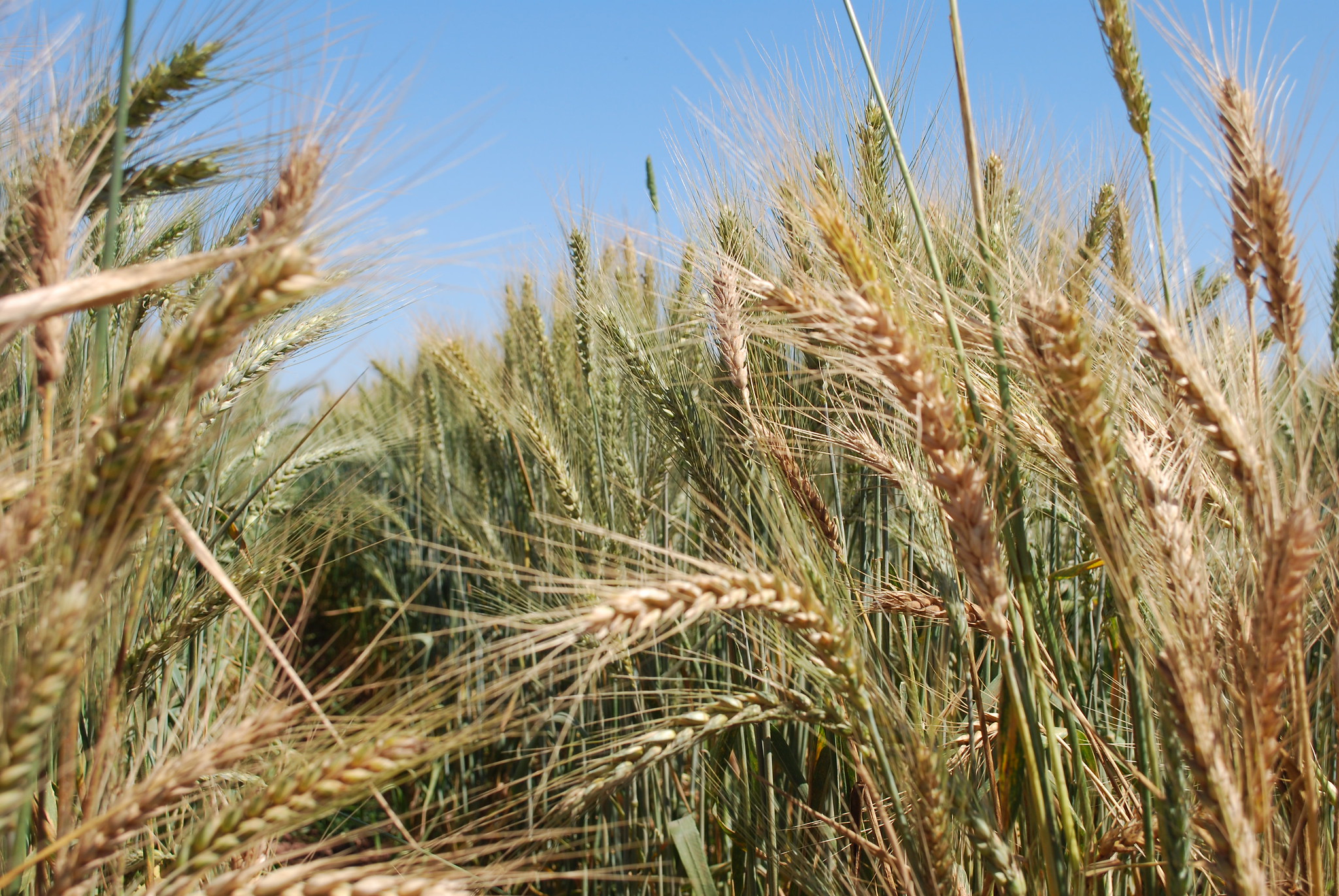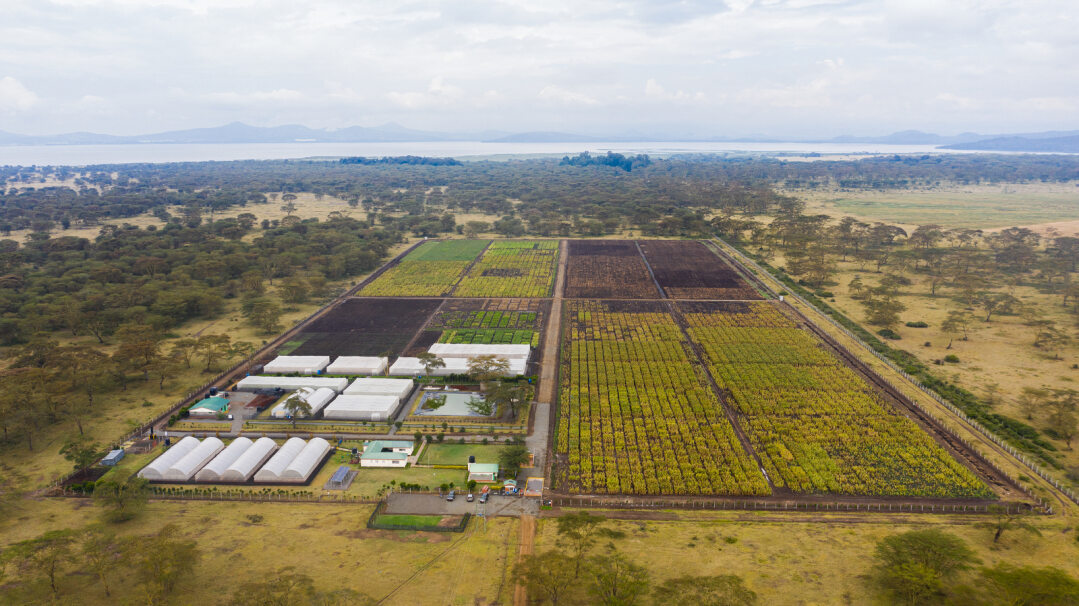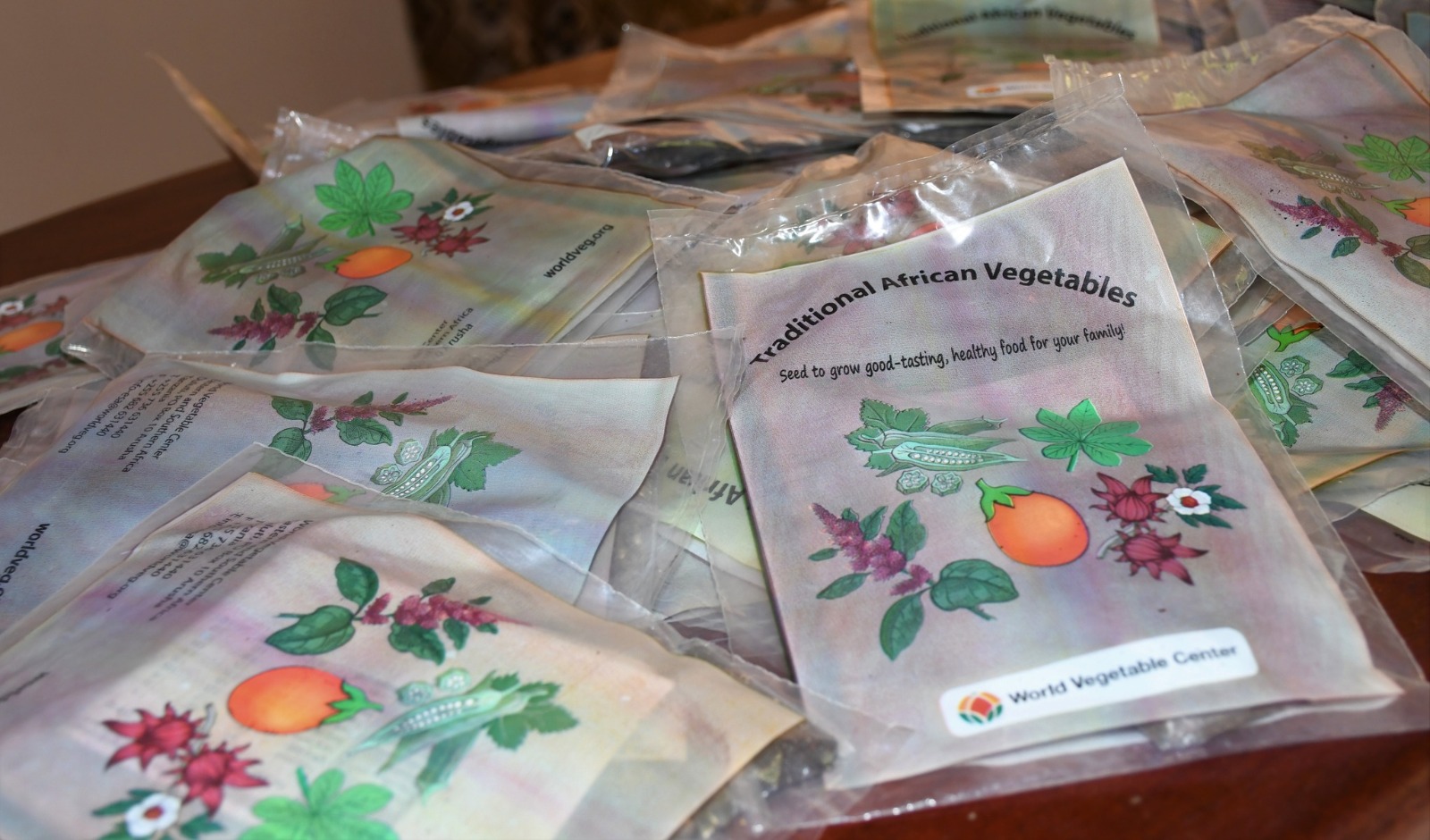CIMMYT Appoints Flavio Breseghello as Global Wheat Program Director
 Capacity development
Capacity development
CIMMYT has appointed renowned wheat breeder Flavio Breseghello as Director of the Global Wheat Program to lead innovative, climate-resilient research at a critical time for global food security
Wheat breeding strategies for increased climate resilience
 Climate adaptation and mitigation
Climate adaptation and mitigation
CIMMYT and its global partners, including leading institutions in China, conducted groundbreaking research to develop climate-resilient wheat varieties by analyzing the genetic diversity and adaptability of thousands of breeding lines under future climate scenarios
Linking sustainable agricultural methods
 Climate adaptation and mitigation
Climate adaptation and mitigation
CIMMYT researchers examine the possibility and benefits of linking Conservation Agriculture and carbon credits.
Unlocking Zambia’s maize potential through crop diversity
 Environmental health and biodiversity
Environmental health and biodiversity
CIMMYT and ZARI trial different methods to increase maize productivity.
Unanswered questions and unquestioned answers
 Environmental health and biodiversity
Environmental health and biodiversity
Crop residue and weed control in southern Africa
Sustaining Conservation Agriculture initiatives: lessons from Malawi
 Climate adaptation and mitigation
Climate adaptation and mitigation
Conservation Agriculture offers sustainable solutions for Malawi’s agriculture. Prioritizing farmer-centered approaches can drive widespread adoption, ensuring food security and climate resilience.
Digging in the Dirt: Detailed soil maps guide decision-making, from the field to the policy room
 Climate adaptation and mitigation
Climate adaptation and mitigation
It’s not just dirt. Soil health is a key component in agricultural sustainability.
CIMMYT joins global efforts to curb greenhouse emissions and strengthen food systems
 Climate adaptation and mitigation
Climate adaptation and mitigation
CIMMYT promoted ways to lessen climate shocks, especially for smallholder farmers who inordinately suffer the effects of climate change, including rising temperatures and extended droughts.
Examining how insects spread toxic fungi
 Climate adaptation and mitigation
Climate adaptation and mitigation
CIMMYT leads international collaboration to monitor invasive pests attacking post-harvest crops and the propagation of toxic fungi.
Strengthening seed systems with Zamseed
 Capacity development
Capacity development
To improve food security in Zambia and Tanzania, CIMMYT and Zamseed join forces to strengthen maize resilience.
Ismahane Elouafi returns to CIMMYT—on a system-wide tour
 Environmental health and biodiversity
Environmental health and biodiversity
CGIAR leadership visited CIMMYT to learn about the Center’s work in advancing resilient food systems.
While you were sleeping: increasing nighttime temperatures and their effects on plant productivity
 Climate adaptation and mitigation
Climate adaptation and mitigation
Warming nights due to climate change are affecting wheat crops, including traditionally heat-tolerant varieties, according to a study by CIMMYT researchers. The findings underscore the need to take nighttime conditions into account when breeding resilient crop.
Ten years later: CIMMYT facilities in East Africa continue to make a difference
 Climate adaptation and mitigation
Climate adaptation and mitigation
A decade of maize impact, celebrating 10 years of success with CIMMYT’s maize DH and MLN screening facilities.
Scaling up health diet seed kits in Zanzibar
 Capacity development
Capacity development
Health diet seed kits are enhancing food and nutrition security in Zanzibar.
